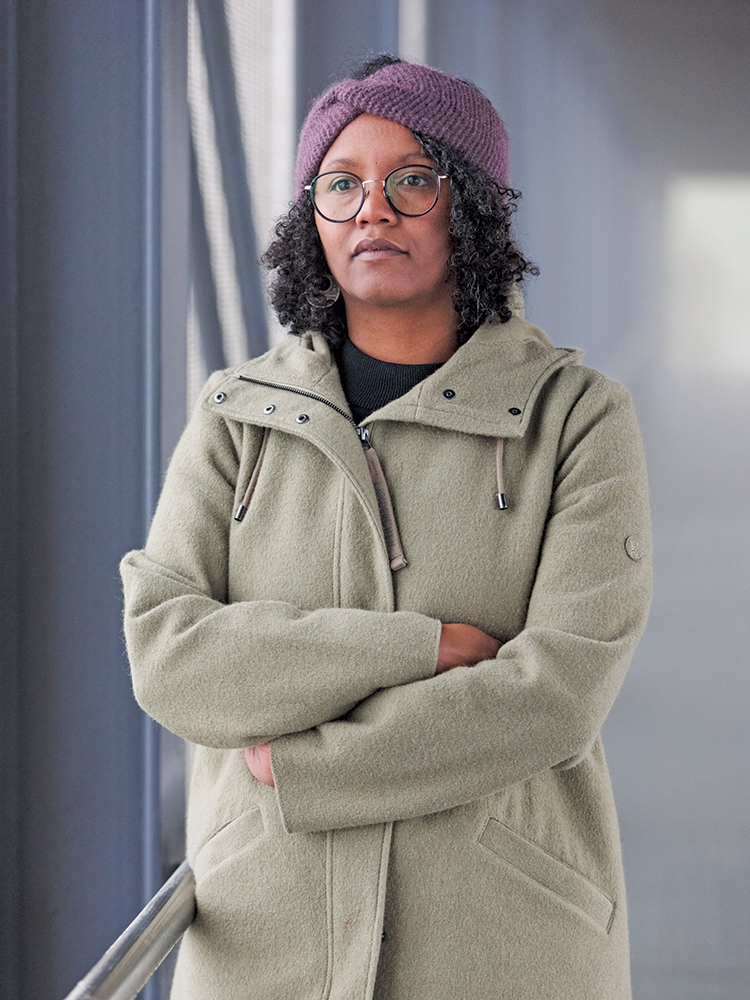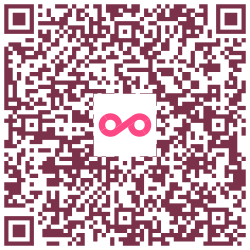- Gesellschaft
“There is no greater agony than bearing an untold story inside you.”[1]
I was born in 1983 at the clinic Dr Bohler, my parents Francisca and Tomaz are Cape Verdean immigrants of the 1970’s. As a child I grew up mostly in the district of Bonnevoie, where I started Kindergarten in Gelé at the age of 4. I didn’t directly attend the first class at the age of 6. Instead, some class fellows and I did some sort of integration class. I don’t know how they called it back then. My mother tongue is creole from the Cape Verdean Island, and I remember that I spoke French before I could speak Luxembourgish.
The story I’m about to tell you happened when I was a student in the 12ième technique générale. I attended the Fieldgen, an all-female catholic school at that time. It was then and there that I met my English teacher, Mrs Do Carmo.
She was the kind of teacher that was able to catch my attention right away. She had an open way of communicating and I didn’t have the feeling as if she was looking down on us. She was present and creative in her teaching methods. I remember, her first class, she asked us what we were expecting from her and what our relationship with the English language was.
To be honest: I didn’t like English at all. I generally preferred science to language. There is no reasoning nor emotional judgement to that, but mathematical operations seemed simpler: you just apply rules in order to find results. I also liked that we corrected the exercises collectively in class and we could reclaim points if we thought that we were under graded. We got acknowledgement for the process and not only for the outcome.
Back then my teacher Mrs Do Carmo let us individually pick a book from a list to read by ourselves. This was the first time I could ever select a book myself. I chose a biographical novel called ‘I know why the caged bird sings’, written by Maya Angelou. Believe me when I say that my motivation to read that book was as low as the sunrise during the Luxembourgish winter. One can only imagine my astonishment when I read the very first sentence of the first chapter… While I was reading the following passage, a memory of a personal experience from years ago resurfaced in my mind, I suddenly felt a captive and painful emotion in my heart and some tears just came out:
“Wouldn’t they be surprised when one day I woke out of my black ugly dream, and my real hair, which was long and blond, would take the place of the kinky mass that Momma wouldn’t let me straighten? My light blue eyes were going to hypnotize them… Then they would understand why I never picked up a Southern accent, or spoke the common slang, and why I had to be forced to eat pigs’ tails and snouts. Because I was really white and because a cruel fairy stepmother, who was understandably jealous of my beauty, had turned me into a too-big Negro girl, with nappy black hair, broad feet and a space between her teeth that would hold a number two pencil.”

© Philippe Reuter / forum
I can’t recall where I was at that moment, but I can tell you exactly how I felt: allayed and sad. I was relieved as I had had that identical dream, over and over, when I was in kindergarten, “that one day I would be magically transformed back to my true self; a light, blond girl with blue eyes.”
I made a connection between Maya Angelou and myself growing up among a Caucasian normative society. That Maya Angelou and my six-year-old self had the same fantasy was not a coincidence made up by a naive child. In that moment, I understood that the six-year-old version of me in the 1990’s and Maya Angelou in the 1930’s had one thing in common: we both knew that we would be better off, or treated better at least, if we were a Caucasian blond girl with blue eyes.
In the 1990’s, being a black child, living in a Caucasian dominated society, the only safe space I had was my family circle and the Cape Verdean/African communities, where no one judged me by my skin colour.
To me, the culture around me was all about white dominance. I felt this oppressing feeling while being in class, reading books and stories about princesses and heroes, and even when going to church, looking at a white depiction of Jesus and his angels.
As a little girl, I didn’t have the words or the proper explanation to describe this sentiment of uneasiness, of not feeling quite right. I thought something was wrong with me. I didn’t tell my parents about my dream because it felt like I was betraying them and forsaking who we were. My mission was to adjust and behave correctly. I couldn’t draw negative attention to us.
Reading this passage again: my older self understands now what I was facing as a six-year-old. I learned the definition and meaning behind this ongoing pain and rejection that I felt. And I had learned over the years to embrace my Cape Verdean language, culture as well as the history of the Cape Verdeans, which could be traced back to the slave trade and the following colonization. Through my involvement in Comité Spencer2 and as a peer trainer EPTO3, I discovered the strength that lies in identifying myself and understanding the mechanisms of oppression.
I strongly believe that the book offer of school libraries should reflect the cultural and ethnic background of all the children attending the school. Having a broader choice of books from different authors from all over the world can be beneficial to everyone but especially to those who might be facing the same or similar burdens as the 6-year-old me: so that they might find “their” Maya Angelou.
- Maya Angelou, I Know Why the Caged Bird Sings.
- The “Comité Spencer” was a non-profit association, created in January 2002. The Comité was committed to promoting Cape Verdean culture and traditions, raising awareness of youth violence, racism, and other forms of discrimination in the Grand Duchy of Luxembourg.
- The European Peer Training Organisation is a network of young people and youth serving organisations who use peer education as a way to overcome all forms of discrimination. EPTO trains and supports young people to lead activities that challenge stereotypes and to become activists against exclusion within their own environments.
I’m the oldest sibling out of four. Born and raised in Luxembourg. I’m a lively person, always looking for action, even when it means trouble. My favourite time of the year is when the hikers’ groups meet for the summer hike.
Als partizipative Debattenzeitschrift und Diskussionsplattform, treten wir für den freien Zugang zu unseren Veröffentlichungen ein, sind jedoch als Verein ohne Gewinnzweck (ASBL) auf Unterstützung angewiesen.
Sie können uns auf direktem Wege eine kleine Spende über folgenden Code zukommen lassen, für größere Unterstützung, schauen Sie doch gerne in der passenden Rubrik vorbei. Wir freuen uns über Ihre Spende!
